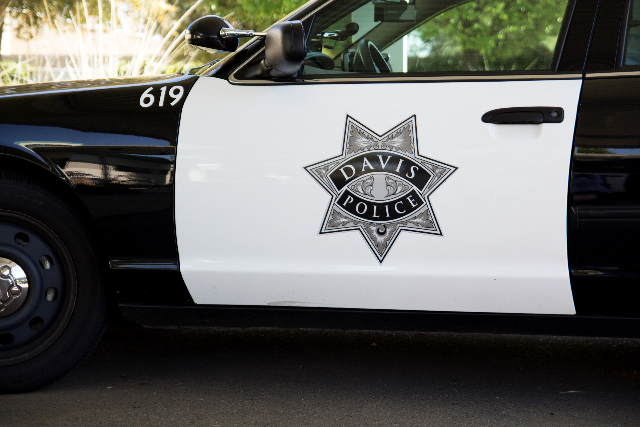A unique relationship between the UC Davis Police Department (UCDPD) and the University Religious Council (URC) has helped establish the first multi-faith Police Chaplain Program on campus.
The URC is a group of ministries that serve as a connection between UC Davis administration and other ethical and spiritual organizations to discuss campus issues.
Last fall, UC Davis Police Chief Matthew Carmichael presented the URC with a draft of the program and collaborated with the UCDPD Chaplain, Rev. Jocelynn Hughes and Muslim Student Association President Maheen Ahmed. Together, they revised the wording of the policy draft to make it more inclusive of all religious communities.
“We’re very mindful of the fact that we’re a public agency,” Carmichael said. “We do not promote any one particular religion or nonreligion. The unique part of this program is that multi-faith dimension.”
In other police chaplain programs, a chaplain typically accompanies a police officer as a spiritual presence at the site of an incident to provide support. Although all chaplain programs do not focus on faith, most are Christian-based, according to Carmichael.
However, the program on campus will administer to people of all faiths and non-faiths and will be student-oriented.
“For me the key to the success of this program is the use of students not only because of the immense benefit it will have on both police and students, but because it will serve as another source of positive interaction between the two,” said Ben Marchman, chair of the Student Police Relations Committee. “… victims of a crime will feel safe going to the police knowing that members of the community and the police are here for them as a resource to use.”
Students will serve a crucial role in the program as they make up the majority of the campus community and accompany chaplains as a peer presence.
The multi-faith ministry will be on a volunteer basis, and members are to be on-call for seven days during each month in case of emergency. Candidates for the Chaplain Program must be certified, ordained or licensed by a recognized religious body and should have completed one unit of Clinical Pastoral Education (CPE). Additional requirements include a successful background investigation by the police department and at least five years of ministry experience.
During the drafting process, Hughes stressed the importance of members being able to minister to everyone in need regardless of faith.
“One thing I know for sure is you can do a lot of damage to people in crisis with bad ministry,” Hughes said.
In addition to the chaplains serving voluntarily, the usage of the program is voluntary as well. If the person at the incident does not want to utilize the service, the chaplain will at least leave brochures and inform the person in question that resources are available if needed.
As the program is in its early stages, some key points that remain rooted in its mission include being non-intrusive and completely inclusive of all members of the community, including police officers themselves, who often deal with high-pressure situations.
An increase in volunteers is also crucial to the program’s success by ensuring that there is always someone available to help when called.
“From talking with the chief, I am confident that as a committee we can provide volunteer support and raise awareness of the program while also making sure that the program stays inclusive, representative of the campus community and is made available to a wide range of students,” Marchman said.
As a completely new concept on campus, the program’s logistics and the specifics of volunteer time commitments are still being developed. Although the policy has been approved, the program itself won’t be fully functioning until mid-2014 to January 2015.
“I think it’s important for the students and this is an interesting partnership that I really want to see work,” Hughes said.
NICOLE YI can be reached at campus@theaggie.org.
Photo by Rousseau Gleitsman.





